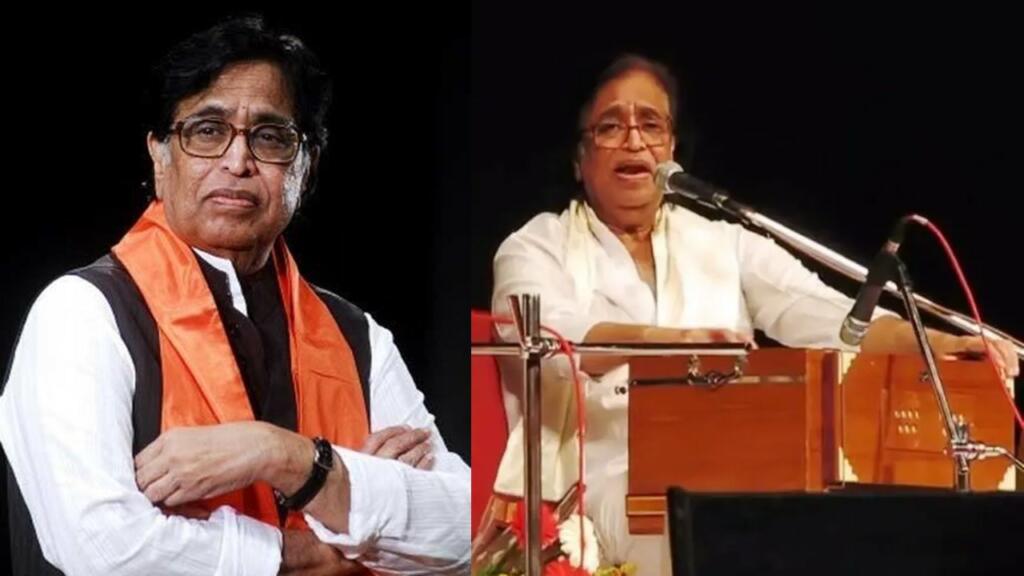Indian cinema, with its kaleidoscope of glitz and glamour, has always been synonymous with families. From the legendary Kapoors who ruled the industry with their charisma, to the Johars who redefined success with their production formula, familial ties have often been the heartbeat of Bollywood’s narratives. However, amid the widely celebrated names, there exists a family that exudes exceptional talent yet often remains overshadowed by their more prominent counterparts – the Mangeshkars. Among this clan, Hridaynath Mangeshkar, an overlooked gem, emerges as a musical genius who carved his own path amidst the resounding echoes of Bollywood.
Indian cinema thrives on dynasties. These cinematic bloodlines weave tales that mirror their own lives, becoming integral to the fabric of storytelling. From the Kapoors’ legacy of legendary actors to the Johars’ trademark production style, familial bonds often translate into cinematic triumphs. Yet, amid the tapestry of these notable lineages, the Mangeshkar family stands as a unique constellation of musical brilliance and creativity, though their legacy has often been overshadowed by more sensational narratives.
The journey of the Mangeshkar dynasty commenced with the artistic vision of Deenanath Mangeshkar, a distinguished playwright and the patriarch of the family. However, it was the collective talent of the singing sisters, Asha and Lata, that truly resonated with audiences, etching the Mangeshkars’ name into the annals of music history. Even Usha Mangeshkar and Meena Khadikar added their distinctive notes, leaving their imprints in the industry.
Also read: Indian actors who vanished after successful debuts
Amid this constellation of stars, one luminary often fades into the background – Deenanath’s only son, Hridaynath Mangeshkar. A musical prodigy in his own right, Hridaynath embarked on his melodic journey at an early age, composing for the film industry. Yet, despite his undeniable brilliance, his opportunities remained sparse, particularly within the Hindi film landscape.
Two key factors played pivotal roles in shaping Hridaynath’s trajectory. First, his inclination towards non-commercial music was evident in his rich Marathi folk compositions, which set him apart from the mainstream Bollywood sound. Second, his profound connection with Swatantryaveer Vinayak Damodar Savarkar, a prominent freedom fighter and poet closely associated with the Mangeshkar family, brought a unique dimension to his musical identity. This association, openly acknowledged by Lata Mangeshkar herself, not only underscored the family’s values but also introduced a political element into Hridaynath’s journey.
Yet, in the midst of these challenges, Hridaynath’s dedication to his art remained unwavering. Despite the shadows cast by political affiliations, he continued to create his melodies, albeit with limited opportunities. One significant juncture in his journey arrived when he dared to compose musical renditions of Veer Savarkar’s evocative poems. This act, while a homage to his family’s historical connection with Savarkar, brought him face to face with the prevailing political currents of the time.
Hridaynath’s fearless artistic expression, which resonated with the sentiments of Veer Savarkar’s poems, collided with the narratives perpetuated by the Congress party. The party, known for its own interpretation of history and the freedom struggle, had constructed a certain portrayal of Veer Savarkar that clashed with Hridaynath’s artistic endeavor. Consequently, his decision to breathe life into these iconic poems through music attracted opposition, turning him into a target of the political currents of the era.
Well said @vikramsampath pic.twitter.com/jzlo9G7VZR
— Shefali Vaidya. 🇮🇳 (@ShefVaidya) July 26, 2021
The repercussions of Hridaynath’s unwavering artistic commitment were felt most acutely in his unexpected dismissal from All India Radio. In an interview with ABP Majha, he recounted this episode that eventually shaped his trajectory. He revealed that he was ousted from his role at the prestigious radio station due to his audacious act of setting Veer Savarkar’s emotive poem to music. This was a poem that fervently implored the sea to carry the poet back to his motherland, evoking a strong sense of patriotism and longing. The collision between artistic expression and prevailing political sentiment ultimately marked a turning point in Hridaynath’s journey.
In the face of adversity, Hridaynath Mangeshkar did not succumb to defeat. He remained resolute, continuing to grasp whatever opportunities came his way. It is a testament to his tenacity that he received the esteemed National Award for his exceptional music direction in the movie “Lekin.” Notably, this was the same film for which his sister, Lata Mangeshkar, clinched the Best Female Playback Singer Award – an extraordinary accomplishment that resonates with the family’s remarkable musical legacy.
Also read: Indian Song Albums that were way ahead of their time
In an alternate reality, Hridaynath Mangeshkar could have stood shoulder to shoulder with musical luminaries like Shankar Jaikishan, MM Keeravani, and Ilaiyaraaja. His innate musical brilliance had the potential to shape the soundscape of Indian cinema. However, the prevailing biases and undercurrents within the decision-making corridors of Bollywood steered the course of history in a different direction.
Hridaynath Mangeshkar’s journey embodies the essence of artistry in the face of adversity. It is a symphony of resilience, determination, and courage that resonates through his compositions. While the spotlight may have eluded him in the glittering world of Bollywood, Hridaynath Mangeshkar remains an unsung hero in the grand narrative of Indian music – a melody maestro who dared to march to his own tune.
In a cinematic realm dominated by glamorous narratives and sensational headlines, the story of Hridaynath Mangeshkar reminds us of the subtler yet profound currents that shape artistic destinies. His journey is a beacon of inspiration for all those who navigate the intricate interplay of art, politics, and personal conviction. Beyond the dazzle of fame, his legacy stands as a testament to the enduring power of music, the resilience of artistic spirit, and the indomitable pursuit of creative excellence.
Sources:
Support TFI:
Support us to strengthen the ‘Right’ ideology of cultural nationalism by purchasing the best quality garments from TFI-STORE.COM
Also Watch:
